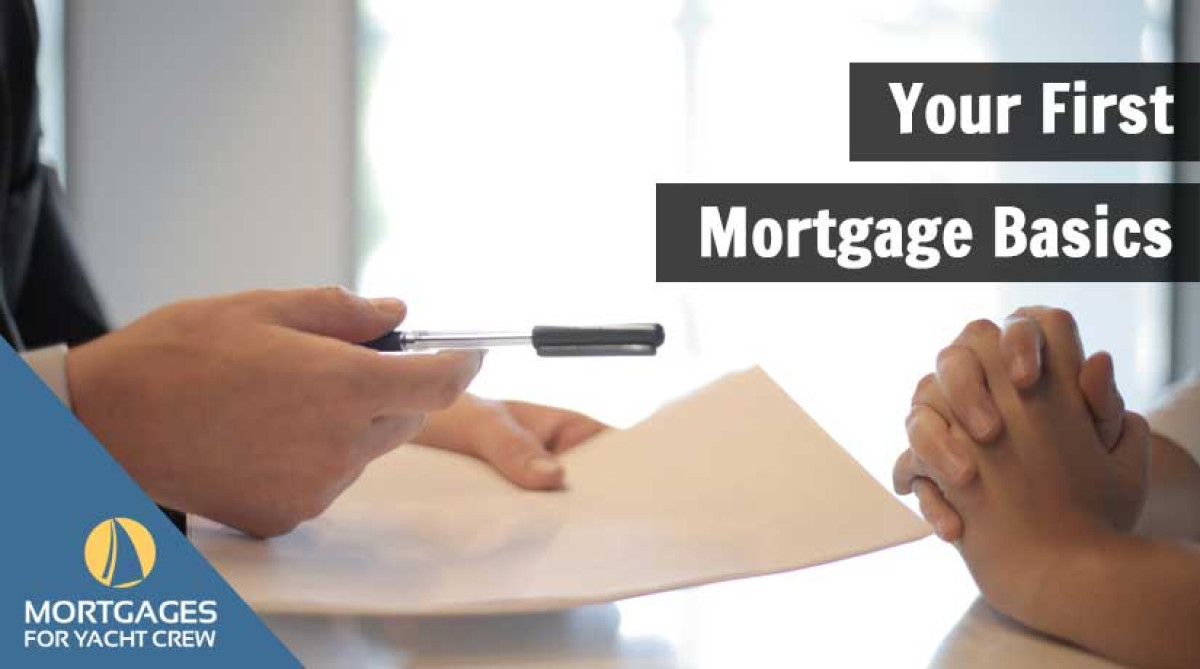Your First Mortgage Basics
- Authors
-
-

Have you started to think about getting on the property ladder, but don’t know where to start?
Getting a mortgage can be a confusing system, full of jargon and terminology that can be daunting, if not off-putting to the uninitiated.
So here’s our simple guide to getting yourself match-fit for your first mortgage.
Read on to find out more or click a jump link below to skip to a chapter that interests you.
Chapters
- Start Saving!
- Check Your Score!
- Consider Your Spending
- Don’t Max Out the Loan to Value
- Start Gathering Paperwork

Start Saving!
When you buy a property, you have to pay upfront for some of it yourself.
This is called a deposit and is the money you will have saved up towards buying that dream house.
The more you can put towards it, the better.
At the moment, mortgage lenders (the banks that will lend you the money for any shortfall in the cost of a house), will lend up to 90% of the total cost.
This is known as the Loan to Value (how much you will have to borrow compared to the actual buying price - usually this is the buying price minus your deposit amount).
For example, a 10% deposit (90% loan to value) on a house that you’re buying for £100,000 would be £10,000.
The mortgage (or amount you borrow) would be for the £90,000 shortfall, or 90% of the property’s value.
If you can stretch to a bigger deposit, and therefore reduce the loan to value, you will have a bigger choice of lenders and interest rates.
This can help reduce your monthly payments and even the amount you end up paying in total for the property.
Therefore, the sooner you start to put money away for your deposit, the better in the long run.
Check Your Score!
Your credit score is now a crucial factor in your mortgage application.
It is calculated based on your financial history and looks at your past and current borrowing and repayment habits.
It knows if you pay bills on time and if you’ve ever missed any payments, how much debt you have, if you’ve applied for credit before and how often.
It also knows if you’ve ever had a County Court Judgement (CCJ) made against you for unpaid debts.
You can usually quickly check how "healthy" it is by entering some basic details into websites like Experian or Equifax.
It is also a good idea to check that all of the information is up to date and correct and that there are no signs of fraudulent activity on it.
If it’s not "Good" or "Excellent", now is the time to do some work to build it up.
There are a number of ways to do this, depending on why it is low.

Consider Your Spending
In the months leading up to your mortgage application, try to spend wisely.
Lenders often ask for your previous three months’ bank statements to 'stress check' you - to assess if you would still be able to pay your mortgage if interest rates were to rise.
This means that reckless spending may go against you.
Similarly, try to avoid going into your overdraft as this will indicate to the lender that you might struggle to meet your monthly payments - not a good start!
Don’t Max Out the Loan to Value
If you can, add a little bit extra to your minimum deposit to break into the next loan to value band.
It’s much better if you can borrow just under the maximum loan to value, and makes you more attractive to lenders.
Using the previous example, if you can pay a deposit of £10,100 instead of £10,000, your loan to value changes from 90% to 89.9%
Start Gathering Paperwork
Lenders will need to see proof of your income, so now is the time to make sure you have all of the following to hand:
- Your last three months' bank statements
- Your last three months' payslips (check now if you receive them)
- Proof of bonuses/commission
- Your last two to three years' accounts or tax returns
- Proof of deposits (e.g. savings account statements)
- ID documents (e.g. passport and driving licence)
- Proof of address (e.g. utility bills or credit card bills)
If you are able to tick all these boxes, you should be ready to get a mortgage and jump on the property ladder.
If you’re not sure about how your individual circumstances may affect your chances of getting a mortgage or you’d like to get an idea of how much you may be able to borrow, get in touch and we can advise you.
IMPORTANT: Mortgages for Yacht Crew does not provide advice in relation to savings and investments. This article is intended for discussion only and does not propose financial advice in any way, and therefore should not be construed as such. Your property may be repossessed if you do not keep up with mortgage repayments.